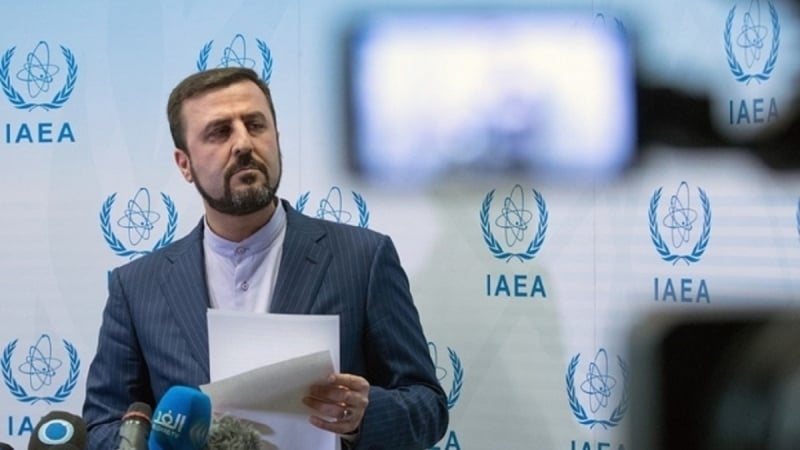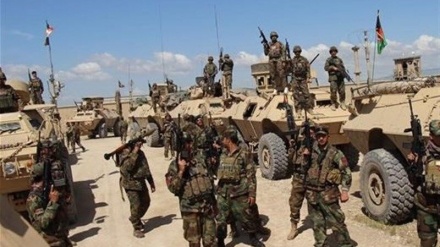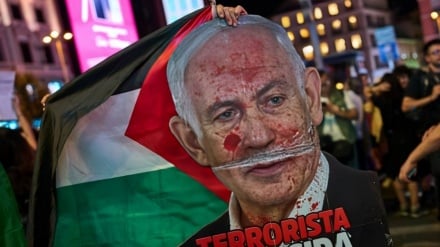Will Islamic Republic of Iran continue cooperating with IAEA as before?
-

Kazem Gharibabadi, Deputy Foreign Minister of Iran for Legal and International Affairs
Pars Today – Iran’s Deputy Foreign Minister for Legal and International Affairs stated that the Islamic Republic of Iran will no longer cooperate with the International Atomic Energy Agency (IAEA) as it did in the past.
Kazem Gharibabadi, Iran’s Deputy Foreign Minister for Legal and International Affairs, addressed the ongoing attacks by the Zionist regime against Iran and Tehran’s legitimate response to these aggressions, saying: "As long as the UN Security Council does not halt the aggression, or the aggressor itself does not cease its violations, actions in self-defense in accordance with international law are permissible.
The measures taken by the aggressor regime have no legal standing, and it cannot claim to be acting in self-defense. This argument has also been raised regarding the Zionist regime’s crimes in Gaza."
Gharibabadi added that "it is meaningless for the IAEA to remain silent about attacks on peaceful nuclear facilities while its inspectors continue to operate normally in Iran." He emphasized: "The Islamic Republic of Iran will no longer cooperate with the IAEA as it did in the past."
Israel has been accusing Iran of pursuing nuclear weapons for two decades
The Iranian deputy foreign minister noted that "the Zionist regime has not signed any of the international treaties on weapons of mass destruction—covering nuclear, chemical, and biological arms—and not only is it not a party to these agreements, but it possesses all three types of WMDs, particularly nuclear weapons."
He stated: "For over two decades, this regime has claimed that Iran is pursuing nuclear weapons and could produce them at any moment. Yet after 25 years, no evidence of such weapons in Iran has been presented. These allegations are merely propaganda to justify the regime’s aggressive and illegal actions and to mislead public opinion."
The UN must take action to stop Zionist regime’s aggression
Gharibabadi stressed that "under the UN Charter, aggression and invasion are prohibited and must not only be condemned but also halted through necessary measures by the Security Council and member states." He pointed out that "many countries, especially Iran’s neighbors, have strongly condemned the Zionist regime’s recent aggression against Iran."
Using the IAEA to pressure the Israeli regime
The deputy foreign minister said that "a wide range of Security Council members, including non-permanent members as well as two permanent members—Russia and China—condemned Israel’s attack on Iran during the Council’s meeting and demanded an immediate halt to these crimes."
He added: "At Russia’s request, an emergency meeting of the IAEA Board of Governors will be held on Monday to address the issue. In effect, the IAEA’s platform is being used to pressure the [Israeli] regime."
Iran’s case on the agenda of the OIC foreign ministers’ meeting
Gharibabadi noted that "Iran’s Foreign Minister has held discussions with the Secretary-General of the Organization of Islamic Cooperation (OIC), and the issue of Israel’s aggression against Iran will be on the agenda of the OIC Foreign Ministers’ meeting next Saturday in Istanbul. A statement by Islamic countries condemning the Israeli regime’s attack on Iran is expected to be issued."
Iraq must prevent its airspace from being used to attack Iran
The deputy minister stated that "some of the Zionist regime’s attacks against Iran were launched from Iraqi territory." He emphasized: "Although Iraq does not currently have full control over its territory, Iran regards it as a sovereign and independent state responsible for preventing the violation of its airspace to carry out aggression against Iran."
Iran will make decisions based on its national interests
Gharibabadi stressed that the recent Zionist attack on Iran’s nuclear facilities is a clear violation of international law, IAEA General Conference resolutions, Board of Governors’ decisions, and UN Security Council resolutions."
He recalled: "After the Zionist regime’s attack on a research reactor in Iraq, the issue was raised in the IAEA Board and the Security Council, leading to resolutions against the regime, which emphasized that attacks on nuclear facilities are prohibited due to their grave risks and legal consequences for the aggressor."
He concluded: "Now, such actions have been repeated. The Islamic Republic of Iran has initiated certain countermeasures, some of which have been communicated to the IAEA, including plans to enhance the protection of nuclear materials and facilities."
MG/ME


